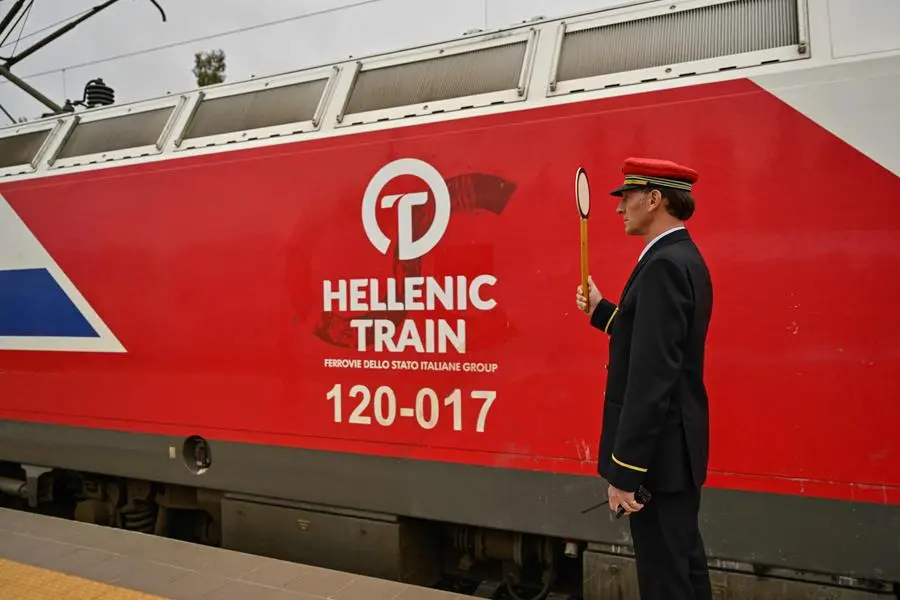PHOTO
Five weeks after Greece's worst rail disaster, which killed 57 people, partial service resumed on Monday on the main train line linking Athens and Thessaloniki, the country's second-largest city.
The route was the scene of a head-on collision on February 28 between a freight train and a passenger train with more than 350 people on board, many of them young students.
The crash triggered weeks of angry protests and is set to weigh heavily on the general election in May, in which Prime Minister Kyriakos Mitsotakis is seeking to retain his post.
In a bid to reassure passengers, Transport Minister Giorgos Gerapetritis travelled on the first train between Athens and the central town of Kalambaka on Monday, along with the head of the rail network company (OSE) and representatives of privatised train company Hellenic Trains.
"Our duty is to have a rail service that lives up to everyone's expectations, a modern rail service that can develop and be among the best in Europe," Gerapetritis told the media.
"It's the government's duty. But it's also a debt we owe to the victims of this tragic accident whose lives were so unjustly cut short."
While the disaster has been in part blamed on the stationmaster on duty near the site of the crash in Tempe, central Greece, it has also highlighted government delays in modernising rail safety systems.
After initially imputing the tragedy to human error, Mitsotakis subsequently acknowledged the train system was plagued by chronic failings.
He has vowed, if re-elected, to install electronic safety systems on the rail network by the end of September.
OSE head Panagiotis Terezakis cautioned on Monday that overhauling the system would be a long-term undertaking.
"These chronic defaults can't be rectified overnight. It takes time," he told AFP.
Some safety measures have already been put in place -- trains have been slowed down, there are fewer services per day, and each station now has two station managers and two engineers on duty.
"An enormous effort has been made to ensure all the contracts for signals and remote controls are completed on time, so that by the end of September we will have a network that is completely safe and meets international standards for passenger protection," Gerapetritis said.
He added that the government was cooperating with its French and German counterparts to modernise the Greek rail network.
The crash prompted weeks of service shutdowns but passenger services between Athens and the international airport resumed on March 22 and freight trains between the port of Piraeus and Thessaloniki began running again a week later.





















